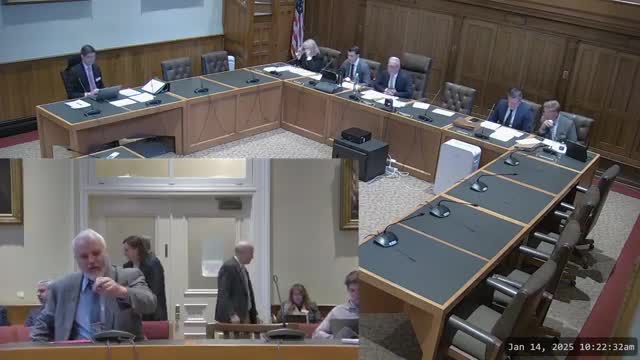Builders seek ability to use buyer‑paid upgrade funds before closing; Attorney General urges protections for consumers
Get AI-powered insights, summaries, and transcripts
Subscribe
Summary
Senate Bill 26 would clarify that funds buyers pay for upgrades and personalized items may be paid directly to builders and used in construction without being held in escrow; the Attorney General’s office urged amendments to protect consumers if projects fail.
Senate Bill 26 would permit buyers’ funds paid for upgrades and luxury items to be paid directly to builders and used during construction rather than being held in escrow under the Attorney General’s current interpretation of statute for certain subdivisions and condominium projects.
Sponsor Sen. Howard Pearl said recent Attorney General guidance reclassified buyer upgrade funds as deposits requiring escrow in subdivisions with 10+ condominiums or 15+ single family homes, producing higher costs, carry burdens for builders and, in some cases, constrained buyer choice. He proposed that signed disclosures clarify that funds paid specifically for upgrades are at the buyer’s risk and, if the buyer’s financing falls through prior to closing, those funds are nonrefundable.
Brandon Garrod (senior assistant attorney general, Consumer Protection and Antitrust Bureau) said the Attorney General’s office was neutral on the bill’s policy goal but raised concerns that removing escrow protections entirely could put consumers at risk. “Giving absolutely no protection to those funds whatsoever or no limitations on how they can be used will put consumers at considerable risk if a project... falls apart,” Garrod told the committee. He suggested a targeted amendment requiring that advance payments for upgrades be segregated and used only for those ordered upgrades, providing flexibility to builders while safeguarding consumer funds.
Matt Mayberry, CEO of the New Hampshire Home Builders, testified that for decades builders and buyers have used disclosures to allocate risk for upgrades and that the current practice worked for most transactions until recent reclassification. “This is a solution looking for a problem,” Mayberry said, arguing that requiring escrow for every upgrade would tie up working capital needed to build homes and could increase prices or reduce buyer options.
Committee members pressed on the consumer‑protection tradeoffs: would buyers get refunds if financing fails; who bears the loss if upgrades are already purchased or installed; and whether a segregated escrow or clear statutory safeguard could address the Attorney General’s concerns while relieving builders’ liquidity concerns.
No committee vote was recorded on SB 26 in the hearing transcript.
